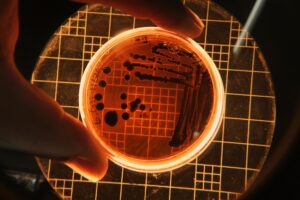14/04/2015
In highly anticipated judgments G 2/12 and G 2/13 (also known as Tomatoes II and Broccoli II), the EPO’s Enlarged Board of Appeal (EBA) has ruled that plants and plant material are patentable in Europe. As a consequence, patents for novel and inventive plants and plant material can continue to be granted by the EPO.
Article 53(b) of the European Patent Convention (EPC) excludes from patentability plant or animal varieties or essentially biological processes for the production of plants or animals. In earlier cases (G 1/08 and G 2/07, Tomato I and Broccoli I), the EBA defined which processes are excluded from patentability (e.g. methods involving sexual crossing and selection) and which processes are patentable (e.g. methods involving genetic modification (GM)). The present cases, which were handled by the EBA in consolidated proceedings, assess the relevance of this exclusion to product claims covering plants and plant material, such as plant parts or fruit.
The EBA has now ruled that the Article 53(b) EPC exclusion on the patentability of essentially biological processes for the production of plants “does not have a negative effect on the allowability of a product claim directed to plants or plant material…[even if] the only method available at the filing date for generating the claimed subject-matter is an essentially biological process for the production of plants disclosed in the patent application…” (emphasis added). Thus, the exception to patentability in Article 53(b) EPC in respect of plants is limited to process claims. The EBA reached this narrow view of the Article 53(b) EPC exception using a methodical interpretation, rather than by considering the various ethical, social and economic implications outlined in many of the amicus curiae briefs that were filed.
The EBA also stated that it is of no relevance that the protection conferred by a product claim encompasses the production of the claimed product by means of an essentially biological process for the production of plants.
In addition, the EBA commented on the patentability of claims for plant products that are defined in terms of a process by which they are produced (so called “product-by-process” claims). According to the EBA, the mere fact that a product-by-process claim includes an essentially biological process for the production of plants does not prevent the EPO from granting a patent for that product-by-process claim. However, the patent-eligibility of such a product-by-process claim depends on whether it meets the other requirements specified in the EPC and “the additional (restrictive) conditions established in the case law of the boards of appeal”.
In light of these decisions, the EPO can now resume granting patents for plants and plant material that have been generated by GM as well as non-GM methods involving crossing and selection, even though the non-GM methods themselves cannot be patented. Accordingly, the stays in EPO proceedings for patents and patent applications directed to plants obtained through essentially biological processes should soon be lifted.
Although these decisions may be unpopular among some campaign groups, they will be warmly received by innovators working in the agri-tech sector.
This article is for general information only. Its content is not a statement of the law on any subject and does not constitute advice. Please contact Reddie & Grose LLP for advice before taking before any action in reliance on it.

